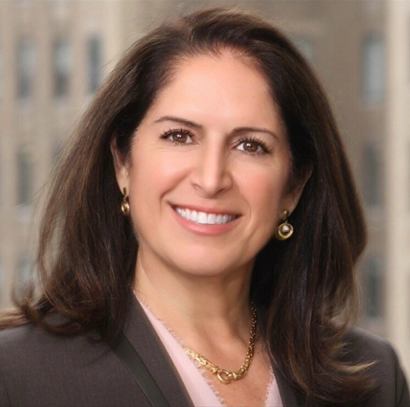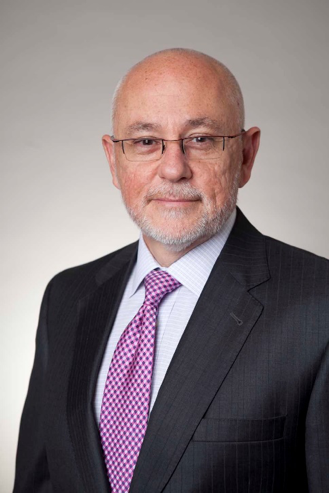As portfolio management moves to the background of a financial advisor’s value proposition, they face a crisis of differentiation. How do advisors continue to justify their fees? Some advisors to high-net-worth clients have found that helping their clients with their health issues is inextricably linked to securing their wealth.
Given that virtually every client will face a health crisis at some point, these wealth managers established connections to health specialists that clients can draw on.
To be sure, advisors are drawn by the desire to help their clients confront challenging health issues. It’s also true that advisors see an opportunity to set their practices apart when the value proposition of financial investment advice is under threat. For example, Schwab’s Intelligent Portfolios Premium basically revalues financial planning at, effectively, $30 per month plus $90 per quarter for unlimited access to a certified financial planner.
But there are things Schwab’s planners probably can’t do for clients, and that includes navigating a complex health care bureaucracy. The need does not come out of a vacuum. The U.S. is aging dramatically. People 85 or older are the fastest-growing segment of the population, according to the Census Bureau. Living to 100 is increasingly commonplace. Centenarians represent the second-largest-growing cohort of Americans. The challenge for 21st-century financial advisors will be to reckon with the trend and help clients make these added years as healthy and productive as possible.
There’s also evidence that wealthy Americans are so worried about their finances, it’s affecting their mental and physical health. A Bank of America survey of more than 1,000 people in the U.S. who have enough investable money to qualify as “mass affluent” found that financial concerns negatively affected the mental health of 59% of respondents, while 56% said their physical health had suffered. Younger people, in the millennial and Generation Z age brackets, reported a bigger impact on health from money worries than their Generation X and baby boomer counterparts.
Cultivate Creative Connections
Insofar as they are able, some advisors take the position they can be part of the solution when clients or their family members experience health emergencies. They establish connections with health professionals in their communities and beyond, partnering with concierge health services and finding other beneficial resources, so when a client faces an emergency, the advisor can offer more than just sympathy.
 Often these advisors tweak the traditional client seminar program. In addition to trotting out experts on annuities or estates, advisors invite gerontologists, memory experts or aging-in-place specialists to educate their clients.
Often these advisors tweak the traditional client seminar program. In addition to trotting out experts on annuities or estates, advisors invite gerontologists, memory experts or aging-in-place specialists to educate their clients.
Catherine L. Guidera, a financial advisor and manager with UBS in New York City, made these health connections a focus of her practice. “All of my clients seek advice not only about investing their assets, but beyond that the situations are particular to each family,” she says. “For example, I have found that children are often forced to make financial and health care decisions for their parents that they are not qualified to make.”
Guidera says that UBS’ partnership with a concierge medical service is helpful when clients have problems managing the medical care of their parents. “I’m convinced that being able to assist clients on such a deep level just makes the relationship with the wealth manager that much stronger,” Guidera says.
Even issues with substance abuse can plague a client or the client’s family, and here too an advisor, prepared with the right connections in the health care industry, can help. One advisor at a national brokerage firm, who did not want to be identified, recalled a client whose son had an addiction. The advisor recognized that his client, with all good intentions, was in fact enabling the abuse.
The advisor watched in distress as the enabling behavior went on; when the client finally expressed frustration, the advisor, with permission, was able to quickly introduce a specialist in addiction and recovery who reframed the problem; the needed intervention was not with the son but with the client. The sooner the client ceased enabling his son’s behavior, the sooner the son could get real help.
Centers of Excellence
 By making these kinds of introductions, advisors can streamline client access to health professionals and specialists. The confidence clients have in the advisor’s ability to take care of their finances translates to confidence the advisor can also effectively help in nonfinancial parts of their lives.
By making these kinds of introductions, advisors can streamline client access to health professionals and specialists. The confidence clients have in the advisor’s ability to take care of their finances translates to confidence the advisor can also effectively help in nonfinancial parts of their lives.
The periodic investment review is an ideal place to start the conversations required to identify the need for third-party services, says Jerry Garner, Senior Lifestyle Advisory Specialist with Signature Access for Morgan Stanley. This is the time to ask, “What’s changed?”
Most clients will readily share details about new jobs, marriages, births, deaths, shifting insurance needs, inheritances. This is when advisors need to slow down and listen. If they do, clients will also share details about illnesses, diagnoses, apprehensions about elder care and other health-related concerns.
Would It Be Helpful If?
It’s at this point that advisors can respond with five of the most powerful words he or she can offer: “Would it be helpful if ...?” That phrase may be the most powerful catalyst for the conversations that identify solutions to problems and build relationships that stick.
For instance, Garner said, the client of a Morgan Stanley advisor whose husband was being treated for early onset dementia found out through these conversations that he was being treated by no less than five doctors, none of whom were talking to the other. The advisor asked if it would be helpful to have a health advocate who could coordinate the health care plan. The client agreed. The husband had an elder care assessment that revealed adverse interactions in the medications that the various doctors were prescribing, interactions that contributed to cognitive difficulties. When the prescriptions were adjusted, the husband regained much of the cognitive functioning thought to be lost.
Holistic Solutions
Some advisors are partnering with concierge health services, like PinnacleCare in Baltimore, that “prestage” health care providers in anticipation of clients’ medical needs, whether that be health crises, bad diagnoses, desire for second opinions, elder care or behavioral health typically centered on addiction treatment and recovery.
Advisors receive no fees or commissions from PinnacleCare for referring potential clients. Nor do clients pay advisors any fees for the referral. Both parties believe that it’s valuable to solidify relationships with their clients in need. Of course, PinnacleCare charges clients for health services rendered.
Concierge medical care, sometimes referred to as direct primary care (DPC) or private physician practice, is also a form of health care delivery growing markedly. One principle linking these practices is that by bypassing the complexity of insurance, health professionals can frequently see patients sooner, in an unhurried environment, and follow up on treatment plans personally.
“Issues of health are becoming paramount,” says Bob Seaberg, formerly Managing Director and Head of Wealth Advisory Solutions at Morgan Stanley and founder of Baltimore-based Intersect Consulting. “When events are important to the life of a client, the advisor should be part of the solution.” For wealth advisors, providing value and experiencing real growth may be found through focusing on the intersection of wealth and health.
If advisors limit themselves to just financial issues, they are limiting their opportunities. “I suggest that advisors get better at what I call the ‘relational arts,’” Seaberg says. “That means being able to tell clients that, insofar as we are able, there are things we can do when you or a family member faces a medical crisis.”
Where does it say that advisors are restricted only to managing their clients’ financial lives? If financial advisors want to remain relevant, they need to position themselves as a toolbox for the various challenges their clients face, whether that be changing transportation needs, managing lifestyle transitions or, in this case, finding a better tool for managing the quality and cost of health care.





